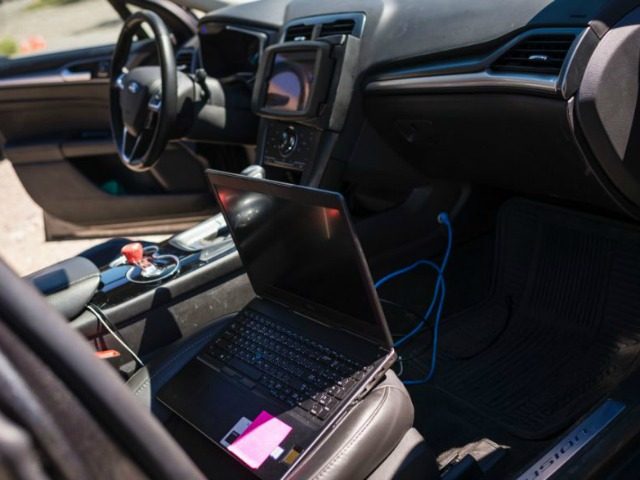Ride-hailing company Uber picked a fight with the California Department of Motor Vehicles on December 14 by commercially launching self-driving cars in San Francisco without first seeking a state permit for qualified testing.
Uber Technologies, Inc. launched the nation’s first “autonomous” (self-driving) ride-hailing service pilot in Pittsburg, PA, in mid-August. But Wednesday morning, San Francisco social media was on fire after a dashboard video from a Luxor Cab captured an Uber self-driving Volvo running the light in front of the San Francisco Museum of Modern Art.
The move by San Francisco-based Uber may be in retaliation for the San Francisco Municipal Transportation Agency’s filing a formal complaint with the California Public Utilities Commission (PUC) on December 12 asking for elimination of the “prior and current rulemaking process” that treats taxis differently from “Transportation Network Companies” (TNCs), such as Uber and Lyft operators.
Although SFMTA stated they need restrictions to control greenhouse gases because “much of the increase San Francisco has experienced in vehicular traffic can be attributed to the huge increase in the number of TNC vehicles operating on city streets,” the real reason for the PUC complaint appears to be about taxes and fees for the city.
San Francisco’s 1,800 taxis must pay the city a one-time $250,000 medallion purchase fee, and then pay thousands of dollars each year in “limousine” fees and taxes. But with TNC vehicles only subject to $91 for an annual business license fee, an estimated 45,000 Uber and Lyft drivers now operate in the city.
San Francisco-based Uber is allowing customers who request an upscale UberX ride in San Francisco to receive priority matching for one of the undisclosed number of Uber specially outfitted Volvo SUVs.
Head of Advanced Technology Group Anthony Levandowski wrote on Uber’s blog, “Expanding our self-driving pilot allows us to continue to improve our technology through real-world operations.” He added, “Pittsburgh provided a wide array of experiences. San Francisco comes with its own nuances including more bikes on the road, high traffic density and narrow lanes.”
California DMV officials quickly responded that there are 20 manufacturers that already have obtained California pilot permits for self-driving cars, including Google’s test of a fleet of 100 autonomous cars, each with a professional driver as a safety back-up, that are roaming around its northern California headquarters.
DMV general counsel Brian Soublet wrote in a stern letter to Uber’s Levandowski:
“If Uber does not confirm immediately that it will stop its launch and seek a testing permit, DMV will initiate legal action, including but not limited to, seeking injunctive relief.”
Levandowski acknowledged what he called a “debate” over whether a permit is required to operate in San Francisco. But he stated that Uber believes it does not need one since there will be a driver “behind the wheel,” making the vehicles “less than fully autonomous.”
Google and insurance interests led by an intensive lobbying campaign in 2012 to pass several pieces of California legislation that authorized the DMV to create regulatory rules and implement autonomous vehicle tests across the state.
Uber was largely a start-up at that time, but has actively lobbied the DMV in Sacramento throughout the last two years regarding issues surrounding ride-hailing services and autonomous vehicle regulations.

COMMENTS
Please let us know if you're having issues with commenting.